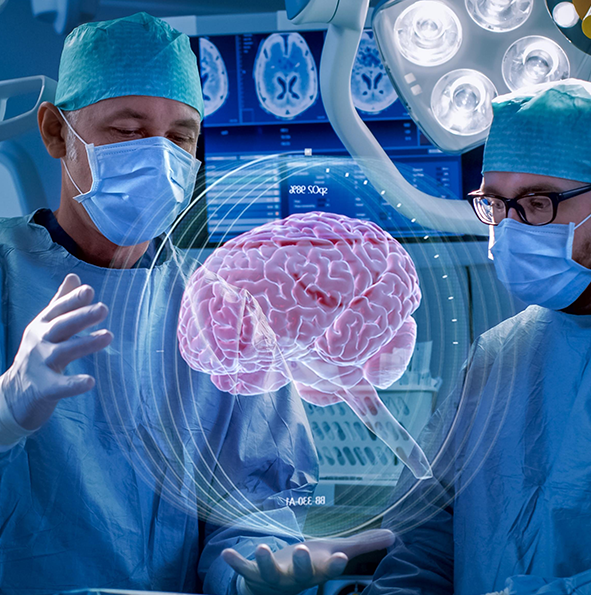
A brain aneurysm, also called a cerebral aneurysm, is a bulge in a weak area of an artery in or around the brain. A blister-like protrusion is created when the weaker part is forced outward by the continuous pressure of blood flow.
Although they can develop anywhere in the brain, most brain aneurysms originate in the main arteries that run along the base of the skull. The majority of aneurysms of the brain are asymptomatic and minor in size. However, cerebral hemorrhage may result from an aneurysm leak or rupture, which might be fatal and necessitate immediate medical attention.
According to experts, the following are the three major types of brain aneurysms.
Saccular Aneurysm: This kind of aneurysm resembles a fruit that is dangling on a vine. It emerges from the main artery or one of its branches as a spherical, blood-filled sac. This is the most common aneurysm
Fusiform Aneurysm: The artery bulges on all sides as a result of this kind of aneurysm.
Mycotic Aneurysm: An infection is the root cause of this kind of aneurysm. The arterial wall may become weaker when an infection damages the brain's arteries and an aneurysm may form as a result of this.
Causes
A brain aneurysm's rupture (burst) and bleeding might potentially be brought on by the same circumstances that led to its development. Experts believe that one of the most common brain aneurysms causes is high blood pressure.
Circumstances that can raise blood pressure and cause a ruptured brain aneurysm include:
Persistent tension or an intense outburst of anger or other strong emotions.
Lifting, carrying, or pushing something heavy such as furniture or weights requires exerting a lot of energy.
Known high blood pressure that is not properly managed.
Symptoms
Brain aneurysm symptoms are classified into two types: symptoms of a ruptured brain aneurysm and symptoms of an unruptured brain aneurysm.
Symptoms of a ruptured aneurysm include:
Thunderclap headache
Nausea and vomiting
Stiff neck
Blurred vision
Seizures
Confusion
Weakness or numbness
Loss of consciousness
Symptoms of an unruptured aneurysm include
Headaches
Vision changes
Pupil enlargement
Tingling or numbness in the face or head
Discomfort behind and above the eye
Seizures
Testing is necessary if you experience a sudden, intense headache or other symptoms that can indicate a ruptured aneurysm.
The following screening exams and methods are used to identify and diagnose brain aneurysms.
MRI Scan: An MRI (Magnetic Resonance Imaging) creates finely detailed images of the brain by using radio waves and a huge magnet. Aneurysm size, position, and shape can be seen with the help of magnetic resonance angiography (MRA).
CT Scan: Most often, CT (Computer Tomography) is the initial imaging test used to check for a brain aneurysm. More precise images of blood flow in the arteries supplying the brain are produced using a CT scan.
Cerebral Angiogram: During a cerebral angiogram, a catheter is inserted into a large artery (often in the groin or wrist) and guided through the heart to the brain's arteries. Injecting dye through the catheter allows X-rays to reveal artery conditions, detecting issues like aneurysms when other tests are inconclusive.
Surgery to remove a brain aneurysm carries several risks, such as bleeding and infection. Additional risks may exist depending on the size and location of the aneurysm.
The Trauma Care Unit at WIINS Hospitals is designed to treat brain disorders brought on by stroke, brain aneurysms, and traumatic brain injuries. We use cutting-edge technology like CUSA, MRI tractography, intraoperative neuro monitoring, and neuro navigation to guarantee the safest possible surgical outcomes.
Our state-of-the-art equipment and exceptional patient care have enabled us to successfully operate on hundreds of patients and support them during their recuperation.
WIINS is also one of the few hospitals in India offering postgraduate training in neurosurgery. The Direct 6-year Post-MBBS Dr NB Neurosurgery Program has been approved by the National Board of Examination, taking into account the qualitative and quantitative enhancement of WIINS. Only a few neurosurgery hospitals in India have been awarded this prestigious honor.
References:

